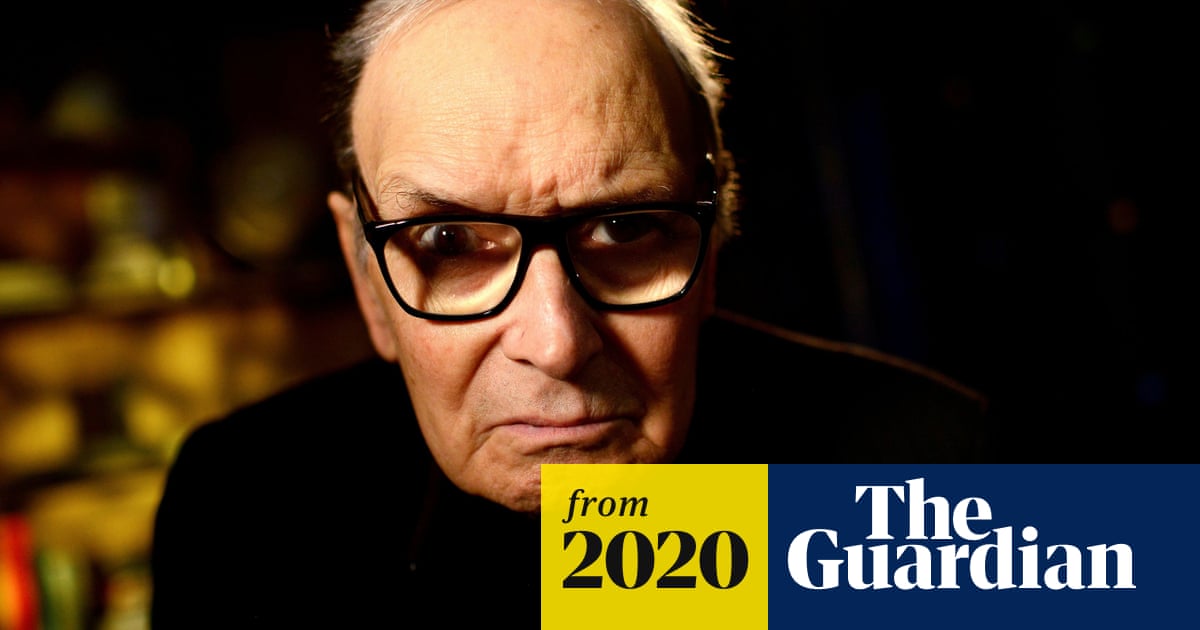Bender
G.O.A.T.
Ennio Morricone, the Italian composer whose symphonic scores backed everything from spaghetti westerns to romances, horror, sci-fi and more, has died aged 91.
Morricone had broken his femur some days ago and died during the night in a clinic in Rome. His death was confirmed by his lawyer, Giorgio Assumma.
Born in Rome in 1928, Morricone took up the trumpet and wrote his first composition aged six. He studied classical music and after graduating began writing scores for theatre and radio. He was hired as an arranger by the label RCA in Italy and also began writing for pop artists – his songs became hits for Paul Anka, Francoise Hardy and Demi Roussous, and he later collaborated with Pet Shop Boys. He also made boundary-pushing avant garde work with Gruppo di Improvvisazione di Nuova Consonanza, a collective of experimental, improvisational composers.
But it was his film scores that brought him the most fame. He began in the mid-1950s as a ghostwriter for films credited to others, but his collaborations with Luciano Salce, beginning with Il Federale (The Fascist) onwards, established his name.
Morricone went on to work in almost all film genres, and some of his melodies are perhaps more famous than the films he wrote them for. Jerzy Kawalerowicz’s 1971 film Maddalena is little remembered today, but Morricone’s two pieces for the film, Come Maddalena and Chi Mai, are among his most beloved, the latter reaching No 2 in the UK Top 40 following its reuse in the BBC drama series, The Life and Times of David Lloyd George.
His 1960s scores for Sergio Leone, backing a moody Clint Eastwood in the Dollars trilogy, were huge successes and came to define him: with their whistling melodies, and blend of symphonic elements with gunshots and guitars, they evoke the entire western genre. “The music is indispensable, because my films could practically be silent movies, the dialogue counts for relatively little, and so the music underlines actions and feelings more than the dialogue,” Leone has said. Morricone has said his own best work was for Leone’s 1984 film One Upon a Time in America.
Those films, and Morricone’s scores, were a clear influence on Quentin Tarantino who hired Morricone for his western The Hateful Eight. It earned Morricone his first Oscar outside of his lifetime achievement award. Tarantino also used his music in Kill Bill, Inglourious Basterds and Django Unchained, with Morricone writing an original song for the latter.
Other iconic films he scored include The Thing (directed by John Carpenter), The Battle of Algiers (Gillo Pontecorvo), Days of Heaven (Terrence Malick) and The Untouchables (Brian de Palma) and the La Cage aux Folles trilogy (Édouard Molinaro).
He frequently toured highlights from his catalogue, and was still conducting his orchestra in 2019. He sold more than 70m albums worldwide, and as well as his two Academy awards, he won four Grammy awards and six Baftas.
The British film director Edgar Wright paid tribute on Twitter. “Where to even begin with iconic composer Ennio Morricone? He could make an average movie into a must see, a good movie into art, and a great movie into legend. He hasn’t been off my stereo my entire life. What a legacy of work he leaves behind. RIP.”

Ennio Morricone, Oscar-winning Italian film composer, dies aged 91
Morricone’s work helped define the western but he went on to work across all film genres
Last edited:
